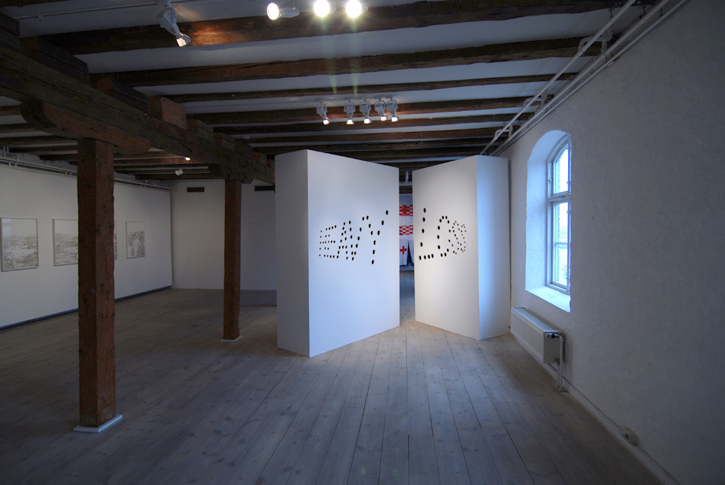På ändlös
led är livet fritt, ej trives tvång,
När havet sjunger, grönt och vitt, sin höga
frihetssång
Till havs, till storms, du djärva jakt,
Till storms, till havs, var man på vakt,
Till havs!
Jussi Björling,1953
|
HEAVY LOSS - one of the most frequently used phrases to describe the financial world in 2009.
Various factors are interrelated and as a parallel to the turmoil in the financial world this also is reflected in the approach to climate change. The common will to change and add the path for future of our planet is strengthened by the apparent impact of human consumption of Earth's resources provide. A clear influence is the massive loss of ice in Antarctica through dramatic scenes makes us understand how quickly it can change. Huge land areas disappear every year from the South Pole where the ice is broken off. This ice can not recover unless the earth is undergoing a new Ice Age.
The loss of ice allows for new areas of the world to be exploited. Where there previously lay year-round ice has now turned into open water and different nations claim the hidden natural resources which have been embedded and inaccessible during meter thick ice.
The Alfred Wegener Institute for Polar and Marine Research (Alfred Wegener Institute for Polar and Marine Research, AWI) in Germany have carried out measurements over the years and studied the environment and wildlife in the Antarctic ice. The project PALAOA intercepting two hydrophones (underwater microphones), the world beneath the ice. Signals are sent on to the German research station Neumayer Base, Antarctica, which then broadcast by satellite link on to the AWI in Germany and the public with live broadcasts on the Internet. The station is located on PALAOA Ekstöms penencula. It is unmanned and is powered entirely by solar and wind power.
Sound installation HEAVY LOSS consisting of cut out holes in a wall forming the word HEAVY LOSS. Inside the wall a sound is played from PALAOA project - a live farewell concert from below the Antarctic ice - one of Earth's last untouched places are disappearing. Man's continued stubbornness of exploiting the earth's resources and short-term thinking goes hand in hand with the tremendous loss we have to live with when the ice at the poles melts. |
Grupputställningen
Till Havs tar sin utgångspunkt i Varbergs och Konsthallen/Hamnmagasinets
läge, alldeles intill havet. Vinden, doften och stränderna
sätter sin karaktäristiska prägel på omgivningen.
Det havsnära läget är också attraktionskraften
som lockar sommarturisterna och en grundbult för ekonomin. Men
vad är havet egentligen, utöver ett marknadsföringsmässigt
säkert kort? Vad har människan för relation till havet
idag, och hur har relationen sett ut genom historien?
Sex konstnärer och en designduo har bjudits in för att,
med olika konstnärliga uttryckssätt, belysa vårt förhållande
till havet. Utställningen lånar sin titel från Jussi
Björlings klassiska framförande från 1953, där
havet utgör sinnebilden för vår frihetslängtan,
en föreställning som är lika giltig idag.
Verken i utställningen närmar sig havet som natur och kultur
och deras växelverkan med varandra. De olika aspekterna av havet
går in i varandra och återkommer i utställningen
på flera plan; havet som spelfält för politisk och
kulturell handel, som arena för territoriella positioneringar
och de konsekvenser det får för havets miljömässiga
tillstånd. Verken i utställningen återknyter även
till teman som behandlats i konsthistorien allt sedan 1800-talet och
visar deras aktualitet än idag: havet som källa för
våra drömmar och myter, havet som plats för längtan
och förlust.
Anna Johansson,
Curator
Source:
© The Alfred Wegener Institute for Polar and Marine Research
http://www.awi.de
LINK
TO PALAOA LIVESTREAM - PALAOA - Transmitting live from the Ocean
below the Antarctic Ice >>
|


